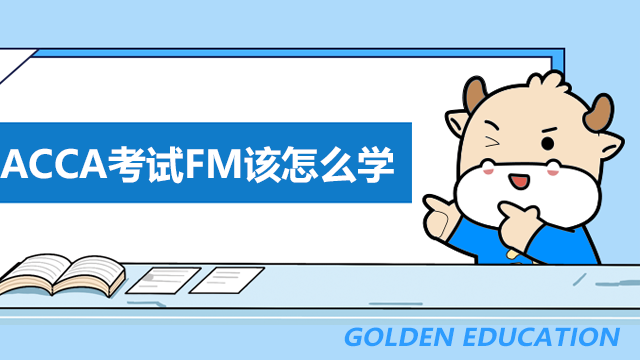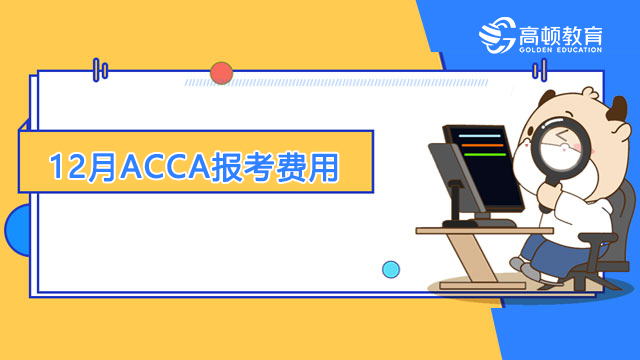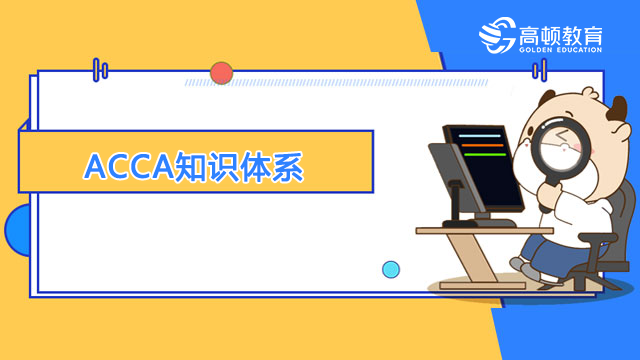2014年ACCA考试F4公司法与商法第十三章总汇2
来源:
高顿网校
2014-07-17
以下是高顿网校为大家整理的:F4公司法与商法第十三章,希望对考生们有所帮助。
2 Terms
2.1 Express terms
(a) No requirement for formal written contract.
(b) Under Employment Rights Act 1996 (ERA 1996) employer must provide written particulars to employee within 8 weeks of starting employment. Note this is not a contract but will constitute strong prima facie evidence of the contractual terms.
Particulars must include inter alia:
· Details of remuneration and procedure for calculation.
· Hours and place of work
· Holidays and holiday pay
· Situation if unable to work (sick pay/leave)
· Length of notice
· Disciplinary and grievance procedures.
Any change to the particulars must be notified within one month.
2.2 Implied terms
Employee is also protected by common law and statutory implied terms. Note that as with any contract terms can be implied by custom and practice.
2.3 Employer’s duties to:
(i) Provide remuneration:
· Amount decided by contract or collective agreement. Common law provides that it must be reasonable now subject to National Minimum Wage Act 1998.
(ii) Provide holidays and holiday pay and comply with Working Time Regulations:
· Limit average weekly working time to 48 hours. The average is taken over a reference period of 17 weeks. (There is an opt out provision but this does not detract from the overriding duty to provide a safe system of work.)
· Limit on night workers average working time to 8 hours.
· Minimum rest periods of at least 20 minutes for every 6 hours of work and a break away from work for 11 hours each day.
· Right to paid annual leave allowing the worker to be away from work for 4 weeks. The right to leave starts to accrue from the first day of employment.
(iii) Provide sick pay:
· Employer provides statutory sick pay on behalf of the government
· No general duty to provide sick pay from his own funds
(iv) Provide a safe system of work: Johnstone –v– Bloomsbury Health Authority
(v) Provide work:
· No duty to provide work unless employee is paid by commission or on piece work, or where work has to be done to keep skills current.
(vi) Indemnify employee
(vii) Conduct his business in a ‘trustworthy’ manner. Breach of an implied duty of trust and confidence may give rise to “stigma” damages: BCCI v Malik. Must also treat employees with respect.
(viii) Allow women maternity rights: ERA 1996 (see paragraph 2).
(ix) Allow time off for union duties
(x) Allow time off to seek work to redundant employees
(xi) Provide itemised pay slips: ERA 1996
(xii) Avoid discrimination:
Sex Discrimination Acts 1975 and 1986
Race Relations Act 1976
Disability Discrimination Act 1995
It is unlawful to discriminate:
Against an applicant for a job or existing employee.
In selection for a post or in access to promotion, training or other benefits.
On grounds of sex, marital status, colour, race, nationality or disability.
Unless (for sex and race) a genuine occupational qualification ((GOQ) exists:
These include selection to preserve decency and privacy, or authenticity in entertainment
(xiii) Pay the same rate of pay to men and women engaged in:
like work or
work rated as equivalent
(xiv) Disability Discrimination:
· Creates a right not to be discriminated against on grounds of disability in employment. Disability is defined as a physical or mental impairment, which has a substantial adverse effect on a person’s ability to carry out normal day to day activities.
· The DDA95 applies to employers who employ 15 or more people. It seeks to protect the disabled employee in all aspects of the employment relationship from recruitment to dismissal. S5 however allows the employer to justify less favourable treatment on grounds that are both ‘material to the particular case and substantial’.
· Employers are also now required to 'make reasonable adjustments' to accommodate disabled persons. It should be noted that S5 allows an employer to justify a failure to comply. In effect changes are only required if ‘reasonable’ taking into account cost and practicability.
高顿网校小编寄语:希望大家继续努力!打赢ACCA这场仗!

扫一扫微信,*9时间获取2014年ACCA考试报名时间和考试时间提醒
高顿网校特别提醒:已经报名2014年ACCA考试的考生可按照复习计划有效进行!另外,高顿网校2014年ACCA考试辅导高清课程已经开通,通过针对性地讲解、训练、答疑、模考,对学习过程进行全程跟踪、分析、指导,可以帮助考生全面提升备考效果。
报考指南:2014年ACCA考试备考指南
免费题库:2014年ACCA考试免费题库
考前冲刺:ACCA备考秘籍
高清网课:ACCA考试网络课程
报考指南:2014年ACCA考试备考指南
免费题库:2014年ACCA考试免费题库
考前冲刺:ACCA备考秘籍
高清网课:ACCA考试网络课程
版权声明:本条内容自发布之日起,有效期为一个月。凡本网站注明“来源高顿教育”或“来源高顿网校”或“来源高顿”的所有作品,均为本网站合法拥有版权的作品,未经本网站授权,任何媒体、网站、个人不得转载、链接、转帖或以其他方式使用。
经本网站合法授权的,应在授权范围内使用,且使用时必须注明“来源高顿教育”或“来源高顿网校”或“来源高顿”,并不得对作品中出现的“高顿”字样进行删减、替换等。违反上述声明者,本网站将依法追究其法律责任。
本网站的部分资料转载自互联网,均尽力标明作者和出处。本网站转载的目的在于传递更多信息,并不意味着赞同其观点或证实其描述,本网站不对其真实性负责。
如您认为本网站刊载作品涉及版权等问题,请与本网站联系(邮箱fawu@gaodun.com,电话:021-31587497),本网站核实确认后会尽快予以处理。
点一下领资料
【整理版】ACCA各科目历年真题
真题高频考点,刷题全靠这份资料
下载合集
acca全科学习思维导图
梳理核心考点,一图看懂全部章节
下载合集
2023年acca考纲解析
覆盖科目重难点,备考按照计划走
下载合集
acca备考 热门问题解答
- acca考试怎么搭配科目?
-
建议优先选择相关联的科目进行搭配报考,这样可以提高备考效率,减轻备考压力,1、F1-F4:为随时机考科目,难度较低,这里可以自行随意选择考试顺序。2、F5-F9:如果你的工作的和财务会计或者审计有关、或者你比较擅长财务和审计的话,推荐先考F7和F8。你可以选择一起考ACCA考试科目F7和F8或者先考F7(8)再考F8(7),这就要取决你一次想考几门。3、P阶段:选修科目中,建议企业首选AFM!第二部分科目进行选择,如果AA和SBR掌握学生更好,可以通过选择AAA,如果SBL掌握的好,可以自己选择APM。
- acca一共几门几年考完?
-
acca一共有15门考试科目,其中有必修科目和选修科目,考生需要考完13门科目才能拿下证书。
- acca一年考几次?
-
acca一年有4次考试,分别是3月、6月、9月和12月,分季机考科目是采取的这类四个考季的模式,而随时机考则是没有这方面的时间规定限制,可以随报随考。
- acca的含金量如何?
-
ACCA证书的含金量是比较高的,从就业、能力提升、全球认可等角度来说,都是比较有优势的证书,其含金量主要表现在以下几个方面:1、国际化,认可度高;2、岗位多,就业前景好;3、缺口大,人才激励。
严选名师 全流程服务
其他人还搜了
热门推荐
-
acca《TX税务》2023-2024考纲变动高达10%,考生请注意! 2023-04-25
-
accaf阶段包括哪几门?这些重点你要注意! 2023-03-30
-
accaF阶段科目考完需要多久?难度大吗? 2023-03-28
-
accaF阶段科目详细信息介绍,这篇介绍全了! 2023-03-23
-
acca《AA审计与认证业务》详细介绍,一文完全了解! 2023-03-17
-
accaF阶段科目介绍,全科难度排序来了! 2023-03-15
-
accaF阶段学多久?学姐经验分享! 2023-03-10
-
accaF阶段科目先考哪个好?报考要注意什么? 2023-02-15
-
accaF8怎么学?备考经验总结! 2023-01-18
-
ACCA考试F阶段考试科目 2022-11-01
-
ACCAf1考试有原题多不多?如何查看考试成绩? 2022-10-19
-
ACCAf阶段的科目内容分别是什么?考试形式是什么? 2022-10-11
-
ACCAf阶段考试科目有哪些?学科内容都是什么? 2022-10-11
-
在上海读ACCA专业的就业前景如何?报名条件是什么? 2022-10-09
-
在上海读ACCA专业的就业前景如何?报名条件是什么? 2022-10-09
-
在上海读ACCA专业的就业前景如何?报名条件是什么? 2022-10-09
-
2023年ACCA考试报名条件是什么?考试报名流程是什么? 2022-09-26
-
2023年3月份考试ACCAf阶段的考试内容是什么?附答题技巧 2022-09-26
-
ACCAf1考试时间是怎么安排的?看完这篇你就知道了 2022-09-13
-
特许公认会计师基础阶段的考试内容是什么?考察什么内容? 2022-09-08
-
ACCA考试FM该怎么学?这份攻略请收好! 2022-09-08
-
ACCA专业的就业前景如何?报名条件是什么? 2022-08-26
-
ACCAf5到f9搭配如何搭配更好?附备考建议! 2022-08-26
-
ACCA要通过多少门才有用?如何申请会员证书? 2022-08-18
-
ACCAf1考试有原题多吗?如何查看考试分数? 2022-08-17
-
12月ACCA报考费用多少钱?报名截止日期什么时候? 2022-08-15
-
ACCA知识体系是什么?附备考攻略! 2022-08-15
-
9月ACCA前四科考试时间是什么时候?附考试攻略! 2022-08-15
-
9月ACCA的F2考试时间是什么时候?什么时候出成绩? 2022-08-12
-
ACCA考下来薪资有多少?考了ACCA有什么好处? 2022-08-08
 更多服务
更多服务







































